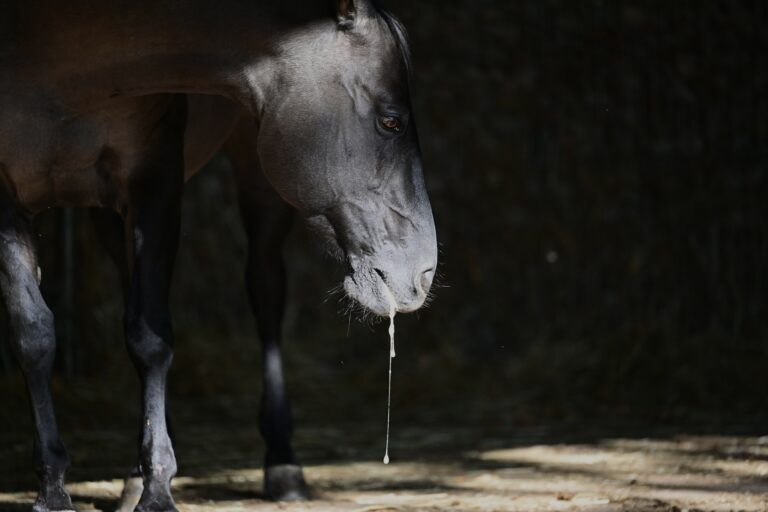
The article “Glucose and insulin response of aged horses grazing alfalfa, perennial cool-season grass, and teff during the spring and late-fall” was published in the Journal of Equine Veterinary Science.
Abstract
“Spring and late-fall grazing can lead to metabolic problems in horses (Equus caballus L.) as a result of elevated nonstructural carbohydrates (NSC) in pastures. Therefore, the objectives were to determine the impact of different forage species on blood glucose and insulin concentrations of horses during the spring and late fall. Research was conducted in May (spring) and October (late fall) in St. Paul, Minnesota. Alfalfa (Medicago sativa L.) and mixed perennial cool-season grasses (CSG) were grazed in spring, and CSG and teff (Eragrostis tef [Zucc.] Trotter) were grazed in late fall by six adult horses randomly assigned to a forage in a cross-over design. Jugular catheters were inserted 1 hour prior to the start of grazing and horses had access to pasture from 08:00 h to 16:00 h in the spring and 08:00 h to 12:00 h in the late-fall. Jugular venous blood samples were collected from each horse prior to being turned out (0 h) and then at 2 hour intervals following turnout. Plasma and serum samples were collected and analyzed for glucose and insulin, respectively. Corresponding forage samples were taken by hand harvest. Seasons were analyzed separately and data were analyzed using the MIXED procedure in SAS with P ≤ 0.05. Teff had lower NSC compared to CSG in the late-fall (P ≤ 0.05) with subsequently lower average glucose, average insulin, and peak insulin in horses grazing teff compared to CSG (P ≤ 0.05). These results suggest grazing teff could lower the glucose and insulin response of horses during late-fall.”
Authors
The authors are: M.L.DeBoer, M.R.Hathaway, and K.L.Martinson, Department of Animal Science, University of Minnesota, St. Paul, MN; P.S.D. Weber, Department of Large Animal Clinical Sciences, Michigan State University, East Lansing, MI; C.C. Sheaffer, Department of Agronomy and Plant Genetics, University of Minnesota, St. Paul, MN; and K.J.Kuhle, Department of Veterinary Population Medicine, University of Minnesota, St. Paul, MN.








